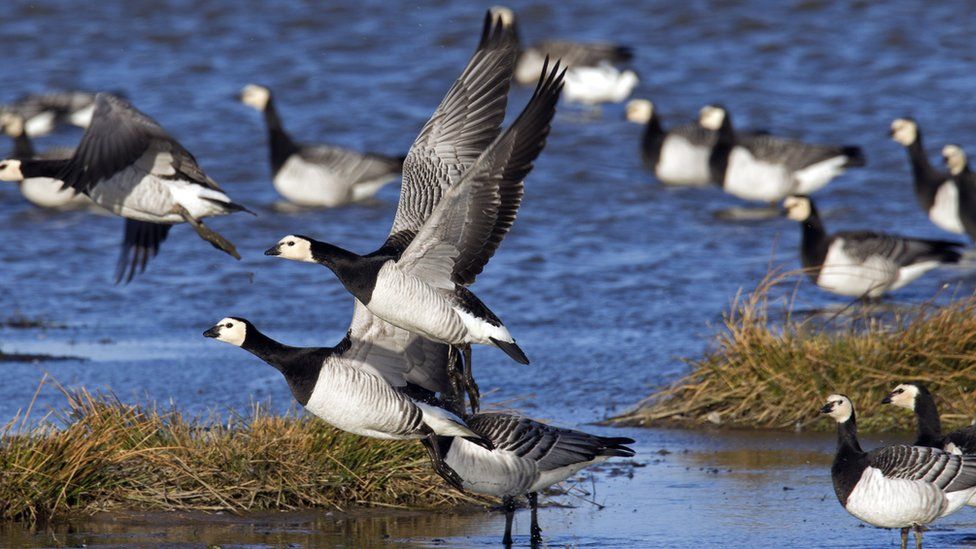ARTICLE AD BOX
 Image source, Getty Images
Image source, Getty Images
By Paul Seddon
Politics reporter
There are more EU era environmental laws to review after Brexit than had been previously known, the environment secretary has suggested.
Therese Coffey told peers around 1,100 such laws existed. This is roughly double the number identified by the most recent official audit.
Under government plans, most EU-derived laws will expire after December 2023, unless specifically kept or replaced.
Green groups argue the deadline will jeopardise environmental protections.
The UK copied over thousands of EU laws in different areas to help make the Brexit process smoother for businesses.
An ongoing review has shown the Department for Environment, Food & Rural Affairs (Defra) has the most EU laws to reassess of any department.
The most recent update, in late September, identified 570 EU laws within the department's remit. It said 70 had so far been changed, with 63 abolished.
But asked at the Lords Environment and Climate Change Committee how many environmental laws there were, Ms Coffey put the number at "around 1,100," with the number now repealed at 140.
The government has pledged that the review will not weaken environmental protections. However, some groups have warned the December 2023 deadline could mean important laws fall away by accident.
Greener UK and Wildlife and Countryside Link have warned that it could lead to "significant gaps in our environmental law", with knock on effects for UK-derived legislation.
The groups have previously estimated there would be more than 1,000 environmental laws to review before the end of next year, placing an "insurmountable" burden on Defra officials.
Environmental law charity Climate Earth has said it is "almost inevitable" that some laws - in areas ranging from air quality to protected species - could "inadvertently fall victim" to the deadline.
Image source, Getty Images
Image caption,The legislation to be reviewed by Defra include a 2013 EU law on the marketing of olive oil
Speaking at the committee, Ms Coffey pledged to take a "considered approach" to reviewing EU-era environmental rules.
"My default will be - so we don't drop the ball - that we retain stuff," she told the committee. "But I want us to go through and see what we can start on."
She said some changes would be about changing "aspects of bureaucracy" - but changes in some areas would need to be considered for longer.
"It's not my intention to suddenly drop lots of legislation just for the sake of it," she added.
Scrutiny concerns
The legislation to create the December 2023 time limit was introduced under former prime minister Liz Truss and is making its way through Parliament.
It would give ministers wide-ranging powers to change or get rid of EU laws through secondary legislation, a fast-track process for making laws that receives less scrutiny from MPs.
It has prompted opposition concern that important laws could be changed without proper levels of scrutiny.
Although the bill contains a power to push the deadline for some laws back to 2026, there have also been concerns about the workload required within the civil service to review all the legislation.
This power to defer, however, has not been handed to the devolved administrations - which have responsibility for environmental law in a number of areas.
The government's ongoing audit has so far identified around 2,400 EU laws in total to be reviewed by the end of next year. This figure is expected to go up as the exercise continues.
The government has said it is assessing a list of 1,400 previously unidentified laws recently unearthed by the National Archives, which it has asked to help identity relevant EU-era legislation.

 2 years ago
27
2 years ago
27








 English (US) ·
English (US) ·